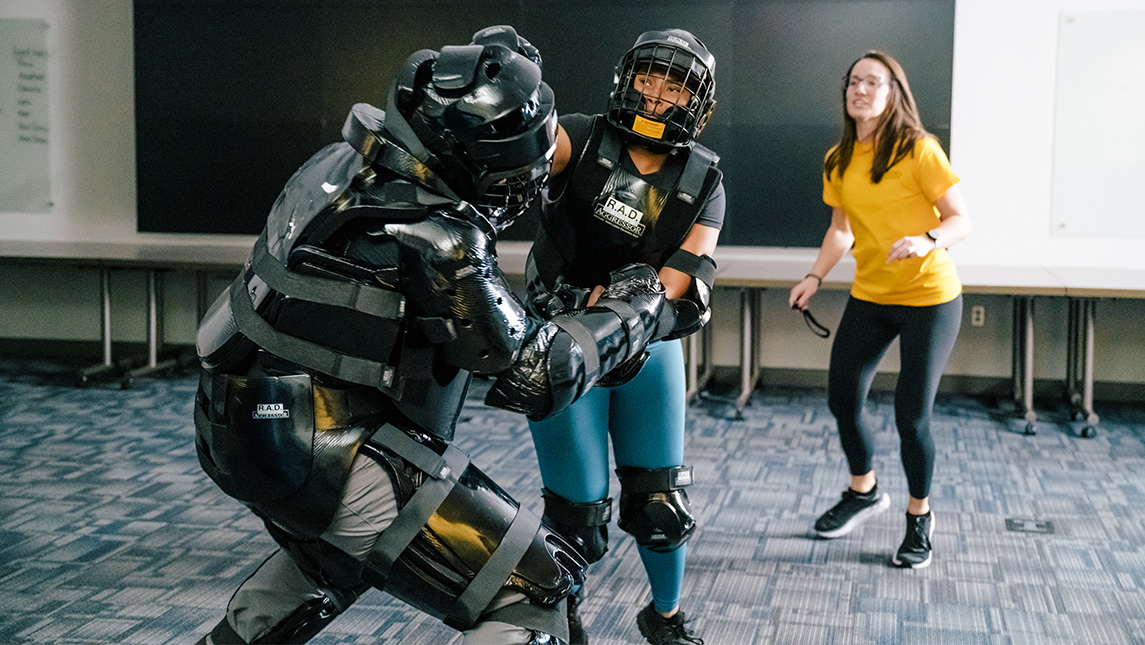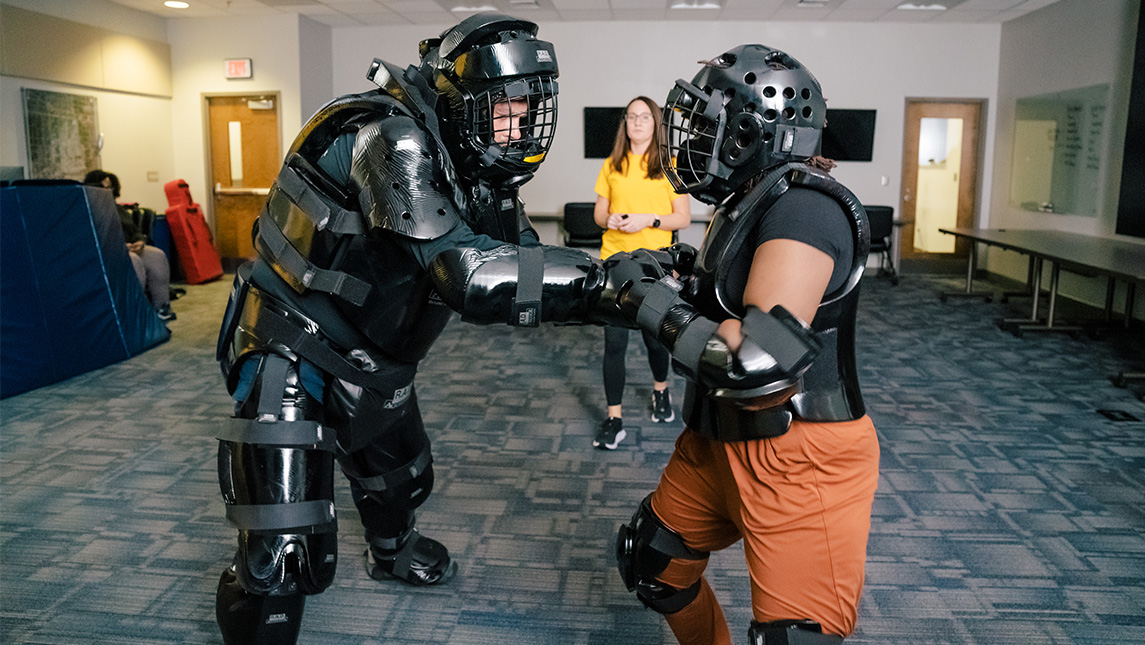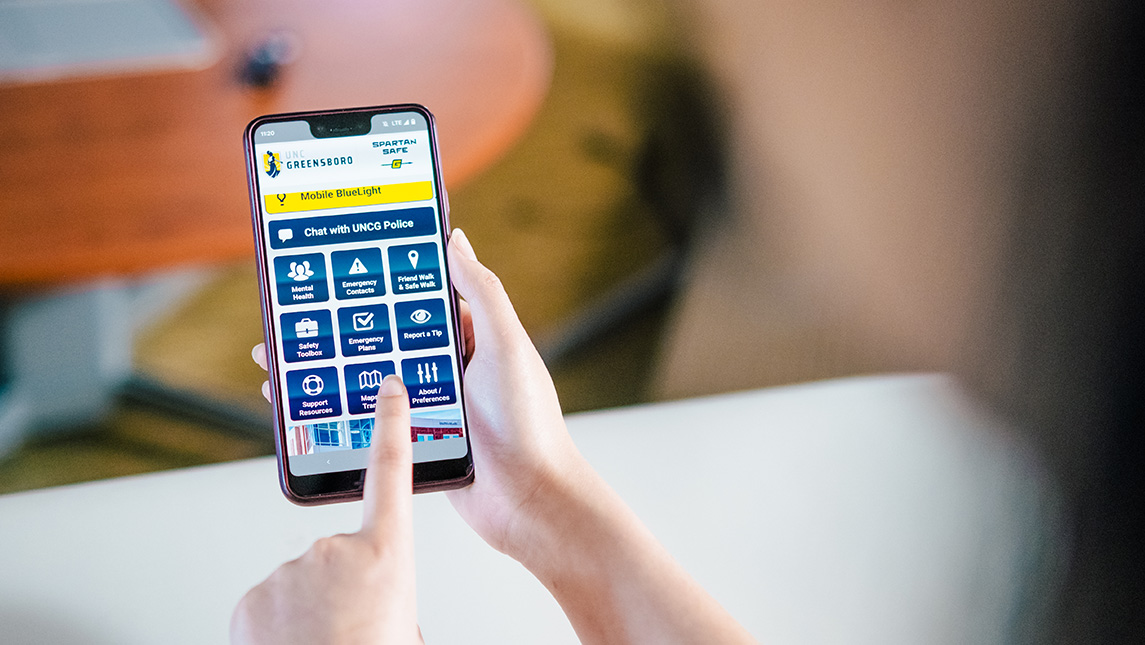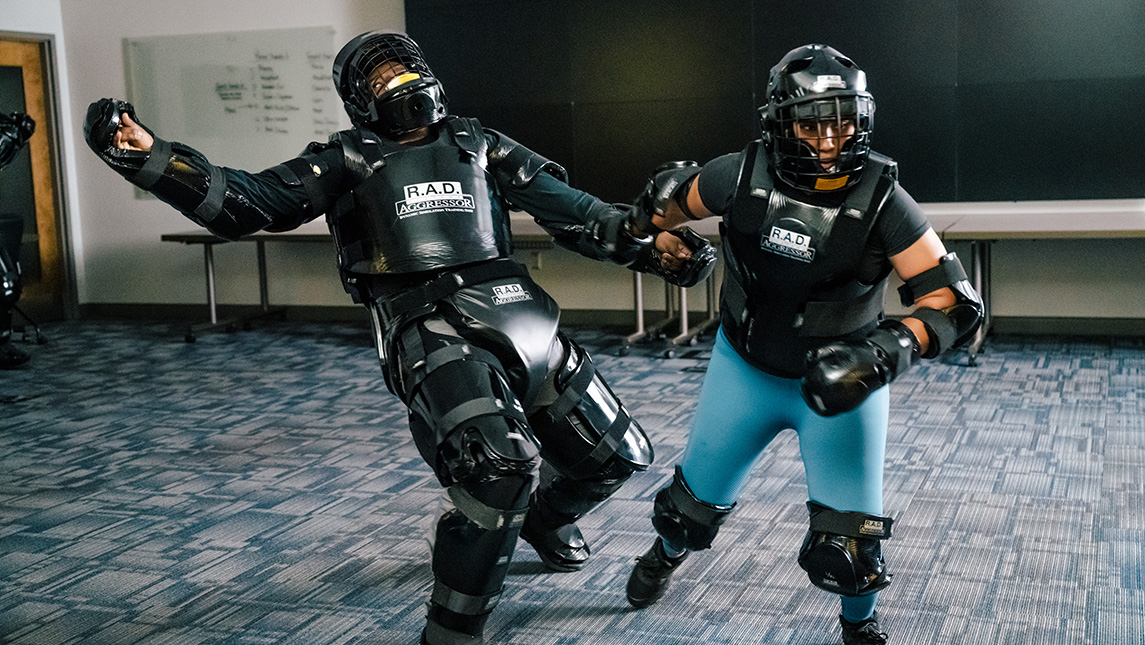UNC Greensboro Police’s Rape Aggression Defense (R.A.D.) class seems straight forward from the name, but instructor Kristi Reese ‘06 says it’s more than what it seems.
“It’s learning what you can do with your personal weapons, with your body,” says Reese, who is also an ITS Analyst for UNCG Public Safety and Police. “Not being able to or not having to depend on somebody, or something else, to help protect you in a time of need.”
Reese was first introduced to “R.A.D. for Women” when she took the course as a UNCG student.
“At the time, and still, I have never been attacked. I’ve never been in a fight. I have never actually hit anything for real. So, I realized after going through my first simulation that I could get out of that situation,” Reese says.
RISK-REDUCTION

R.A.D. is a 12-hour class taught over three to four nights. Participants first go through the basics class, and once they finish, they can move to the longer advanced course.
Ninety percent of self defense education is knowing the four “risks” of personal safety, including risk reduction strategies, like paying attention to exits and what to do when you’re in a specific area like an elevator. The course also includes physical training, such as blocking, knee strikes, and getting out of different chokes.
The class also teaches compliance. Reese says sometimes compliance with an attacker may be the only option, so understanding what to do in that situation is important.
A SMARTER APPROACH
“I really feel a lot safer after taking the class,” says Nizaya Pitts, a sophomore at UNCG who has taken the R.A.D. Basic course. “I feel safer being outside and walking by myself.”
Pitts took a self-defense course in the sixth grade and says she didn’t remember much from the class. She also plans to study abroad in Iceland, so she felt a refresher safety course was needed.
“Before the class, I didn’t feel prepared if something were to happen,” says Pitts, who is studying public health education. “I knew I could defend myself, but the way I would have defended myself would not have been the smart way to do it. The class gave me a smarter approach to handling a situation.”
CATERING THE CURRICULUM

Reese caters the course to the audiences she is teaching – whether it’s students, faculty, or the public. The class is free for UNCG students, faculty, and staff and $25 for the public. At least eight participants are required for the course to be taught.
Kathy Meza-Herrera, a sophomore double majoring in international business studies and marketing with a minor in entrepreneurship, says she appreciated how the course focused on specific situations she could find herself in as a college student.
“As a woman in college, it was important for me to know self-defense,” Meza-Herrara says. “Especially because I don’t consider myself a fighter. I’ve never fought with anybody before. So just getting some basic moves down to defend myself was important.”
SELF-DEFENSE IS FOR EVERYONE
But it was not necessarily the fighting moves that Meza-Herrara took away most from her R.A.D. class.
“Your voice is your biggest weapon,” she says. “When we get in our self-defense stance, we yell ‘no’ loudly. This creates witnesses. If an aggressor is coming toward you and you get in your defense stance and yell back, they won’t mess with you because they don’t see you as an easy target.”
R.A.D. for Women is designed for those who identify as female, but Reese says self-defense is for everyone. If there are eight individuals who want to learn self-defense strategies, Reese says she will work with the group to come up with a curriculum designed to meet their needs.
UNCG Police also offers Sexual Assault Awareness and Violence Education (S.A.V.E.) The two-hour course is offered once per semester by request and covers risk reduction strategies; definitions of sexual assault, rape, dating and domestic violence, and stalking; consent; bystander intervention; and how to report an incident.
“R.A.D is all about knowing that you can take care of yourself, not being afraid if you’re attacked or grabbed,” Reese says. “Why not have that situation, if it hasn’t already happened, be in a controlled environment and learn how to get out of it before it happens.”
Story by Avery Craine Powell, University Communications
Photography by Sean Norona, University Communications

GET THE NEW SPARTAN SAFE APP



